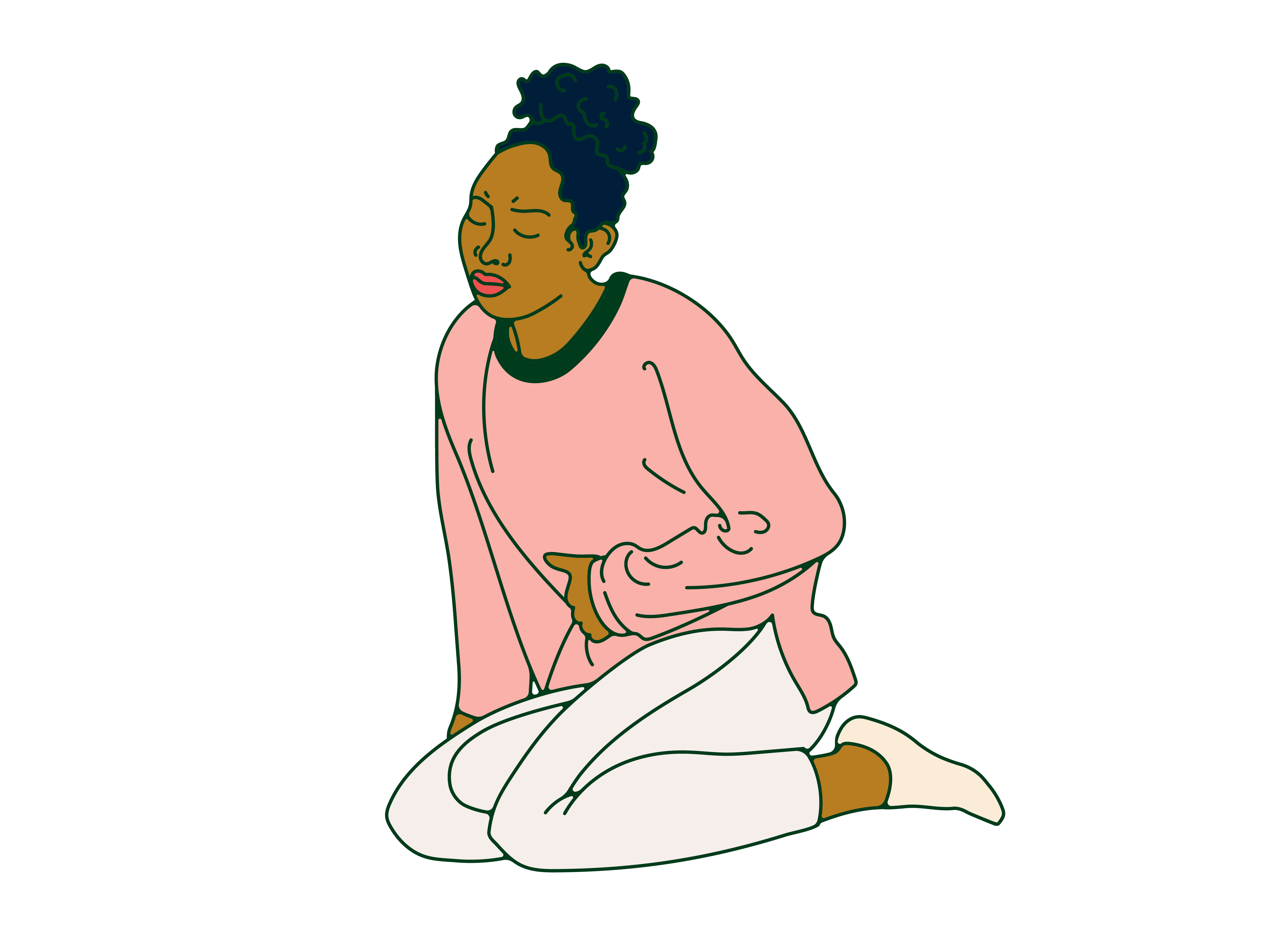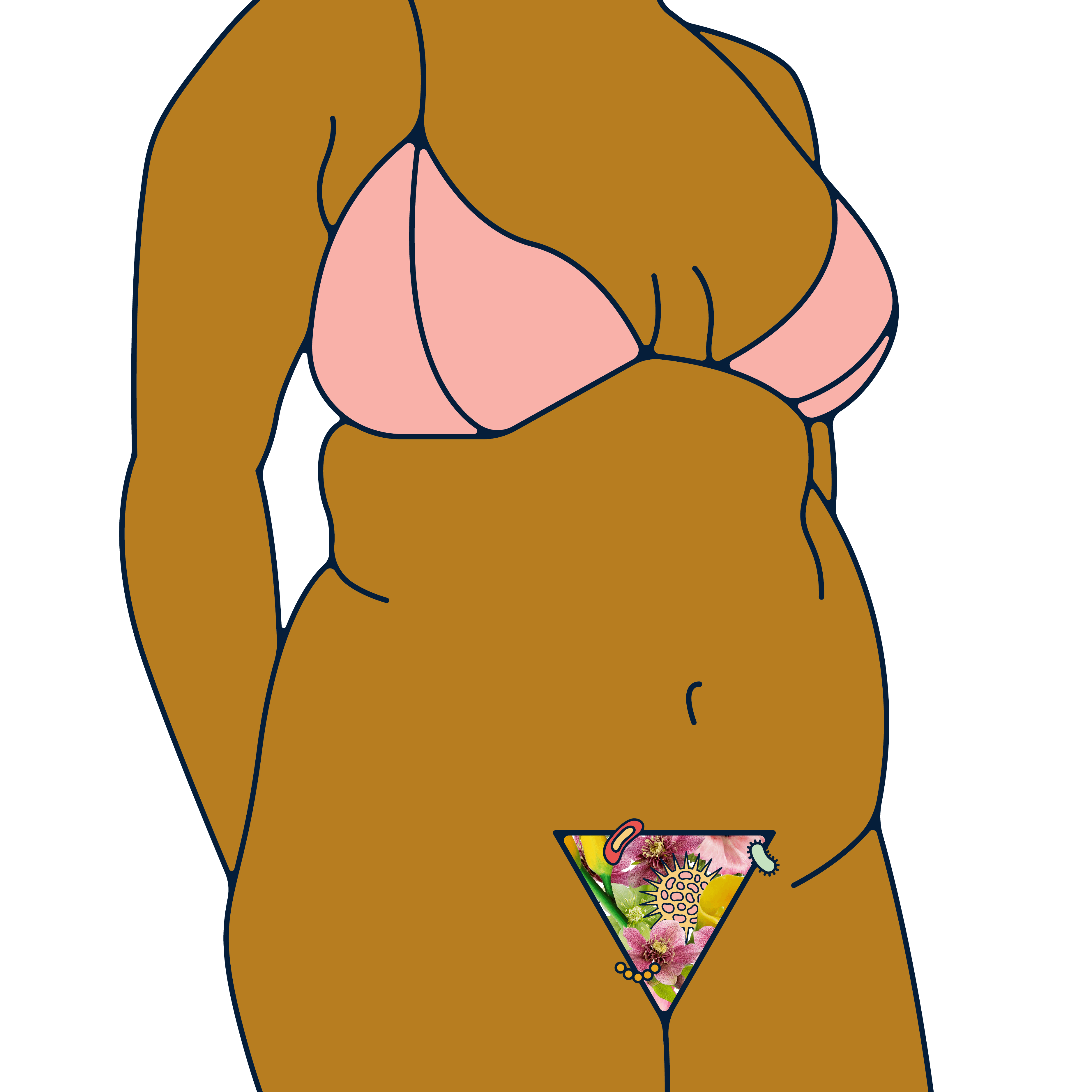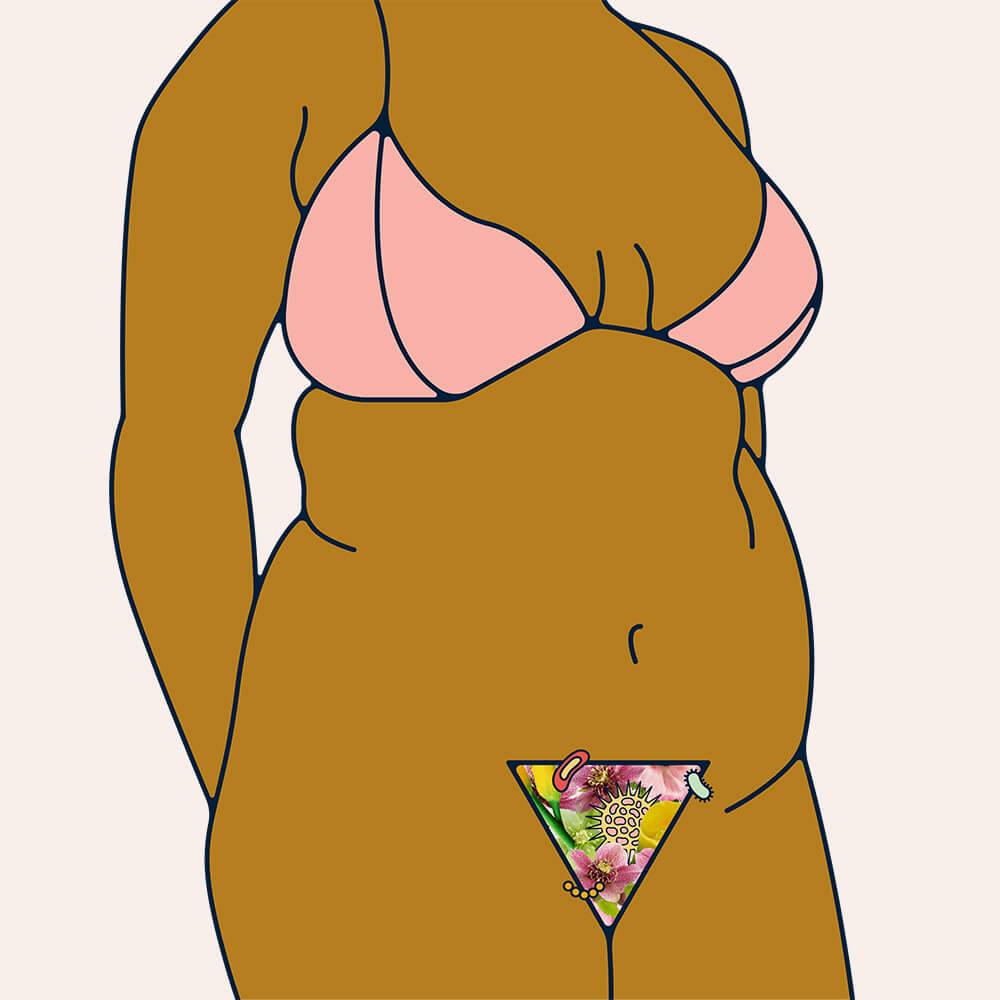Illustrated by Sabrina Bezerra
When it comes to talking about sexual health within Black communities, responsibility (and blame) for the way we engage with the topics is often laid at our door.
While cultural and religious differences can contribute to aversions to particular procedures and medical interventions, they contribute to the framing of a narrative where Black people choose not to engage with a benevolent healthcare system looking to offer care.
The historical fear and distrust we hold is stated as fact but never interrogated; our understanding of sexual and reproductive health medicine has long been shaped by colonisation and anti-Blackness and this history is shielded from us, even those pursuing medical professions.
“I went to UCL, which is basically the university of eugenics,” Dr. Annabel Sowemimo tells me on a Friday morning over Zoom. “A lot of the buildings are named after these individuals and I wasn’t aware of this during my first few years.”
“
Sexual and reproductive health medicine has long been shaped by colonisation and anti-Blackness
Famous eugenicist France Galton left his personal collection and archive to the university while UCL spaces and buildings were named after him, alongside fellow prominent eugenicist Karl Pearson—these buildings were only de-named this June.
However, despite historically celebrated links to an anti-Black ‘science’ that sought to improve the make-up of the human race through breeding out ‘undesirable traits’, Sowemimo only truly encountered how colonialism has shaped medicine during her third year of study when she chose to study medical anthropology.
“Medical anthropology contextualises medicine within cultural contexts and, up until recently, the medical curriculum has been devoid of that,” the 30-year-old doctor. As it is not a compulsory component within medical studies, many students won’t encounter any kind of exploration of why some communities are wary of health professionals or don’t like taking certain medications or procedures.

Even though the course had a profound impact on Sowemimo and dispelled a lot of the myths around medicine as a saviour to the global south and non-Black people, the course still left a lot to be desired—and contended with. “Anthropology essentially started from the study of culture through colonialism, justifying white supremacy,” Sowemimo emphatically shares. “It’s now in this place where it’s been turned into a social science where it attempts to reflect on the world around us critically.”
The anthropology course was transformative for the young doctor—she began grappling with the understanding that medicine hasn’t been shaped the way many of us think it has: “There are infinite conversations that are absent around race, culture and ethnicity and people often can’t even distinguish between these three concepts, often using them interchangeably. This causes huge problems when people are trying to address medical issues and even public health issues.”
During this time, Sowemimo began developing her knowledge around global health inequalities with a specific interest in sexual reproductive health. “I started doing work around FGM (female genital mutilation) because I realised that it’s an issue that particularly pertains to Black women. It resonated with me and I began working to integrate it within the medical curriculum at UCL, while touching base with campaigners already doing work in that area in the UK. UCL became one of the first medical schools to put it on their medical curriculum.”
But this still wasn’t enough for Sowemimo—she found that there was still a gaping lapse between the time it would take for policy research to be published and the evolving material needs of people she’s in the community.

She began writing in 2018, pulling together examples of historical examples of medical abuse, such as the extreme eugenicist ties within the reproductive rights movement and cases involved lack of informed consent with contraceptive trials across the US, UK, and Zimbabwe. As people began to enthusiastically respond to the doctor’s work, Sowemimo then began to flesh out ideas for how the colonial origins of sexual reproductive health could be challenged while providing a space for Black and people of colour communities to discuss these issues safely—enter Decolonising Contraception.
“I called it Decolonising Contraception because ultimately, I think a lot of sexual reproductive health has been focused on the need to control people’s reproductive agendas,” Sowemimo says. “I also wanted to interrogate the project to interrogate the idea that contraception is something that is specifically the issue of cishet women, which is such a pervasive narrative—some of the worst contraceptive abuses have happened to people who do not identify as such.”
Over the last two years, Sowemimo’s idea has since grown into a fully-fledged collective of sexual reproductive health practitioners supporting Black and people of colour communities through leading workshops, policy consultation, health support, sexual health journalism, advocacy and more. The collective is even working towards holding a one-day sexual health and wellbeing festival for people of colour, SexFest, which was postponed due to COVID-19.
Sowemimo shares: “I can’t create any sustained change on my own because I am just one person and I don’t know everything about reproductive health. From a collective point of view, it’s been really helpful because it’s been fundamental to keeping the conversation going and building a network of people doing this work. From a personal point of view, it’s been transformative because it can feel quite lonely having these conversations with people who don’t look like you and don’t understand the context.”
The crux of Decolonising Contraception’s work hinges on accessibility, education and advocacy—the latter in particular is core to Sowemimo’s politics. “I’m very focused on making marginalised communities aware of how to navigate the health system. While we continue to challenge medical professionals on systemic injustice that leads to people having bad care, so for now, we have to understand how to advocate for our own needs,” she says.
“
I’m very focused on making marginalised communities aware of how to navigate the health system
“People need to understand that we can hold the health system to account and the ways you can access information about your own health and well-being. They need to know that you can take information to a medical encounter and say, ‘Can I try this? Is this an option for me? Why did you not offer me that other option?’”
She continues: “I’m not saying the onus should be on us—we should expect medical professionals to be treating us the same way clinically but that is not happening. In the interim, we have to devise strategies within our own communities that enable people to have better health literacy.”






